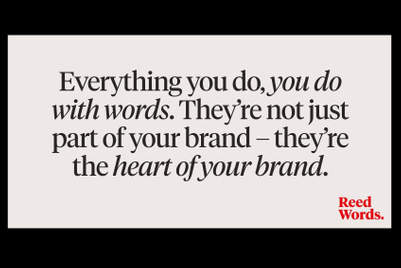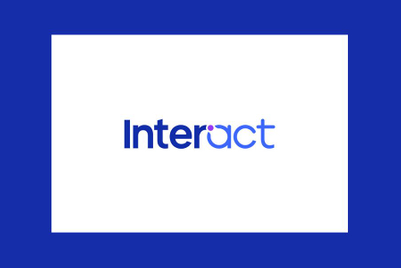
As an industry, we’ve reached a tipping point.
After decades of the promise of automation and the removal of menial manual tasks, agencies are finally doing something about it. *Technology convergence is and will continue to dramatically change our landscape and in particular companies’ operating models. Combined, it'll improve balance sheets, help deliver higher shareholder return, streamline workflow processes and if implemented correctly, create time for people to focus on higher value work—thereby increasing the IP value of every employee.
That is...provided businesses balance effectiveness and efficiency with quality output metrics.
As Jim Carrey says, "If you've got a talent, protect it”.
As we move at breakneck speed towards a new technology-defined corporate age promising endless possibilities, many questions are being raised regarding the efficiency technology convergence will bring. But there is one crucial question no one is still asking: What role do we all play in this exciting new world?
Before answering my own question, it is important to quickly define the environment almost all businesses and therefore, their talent, are operating within.
The current marketplace is a complex landscape for both businesses and consumers, facing a perfect storm of challenges. Businesses grapple with rising inflation, supply chain disruptions, and a volatile economic climate. This forces them to navigate pricing strategies, manage inventory, and adapt to fluctuating consumer demand.
Meanwhile, consumers are facing their own set of difficulties. Inflation is eroding purchasing power, forcing them to make tough choices about spending. The cost of living is rising, impacting everything from groceries to energy bills. This creates a climate of uncertainty and anxiety, making it difficult for consumers to plan for the future.
These challenges are intertwined, creating a feedback loop that makes it difficult for both businesses and consumers to thrive. Businesses need to find ways to navigate these difficulties while still providing value to consumers. Consumers, in turn, need to find ways to manage their finances and make informed decisions about their spending. Finding solutions that benefit both sides is crucial to navigating this complex and challenging marketplace.
If that is not complicated enough, businesses are also under increasing pressure from their shareholders to navigate these uncertain conditions to deliver improved returns from their investment. In the middle of all of this is the media agency, and talented people providing data lead strategic counsel, insight into high-value audiences, mapping the consumers every movement throughout an ever-complex journey map and implementing better-quality investment strategies, while also at times, attempting to predict the future so clients’ businesses can continue to thrive.
It is no wonder most of the conversation surrounding technology convergence is focused on efficiency, and how it will drive improved business results—as the more with less strategy is simpler to value on a balance sheet.
As a chief operating officer (COO), I subscribe to the efficiency mantra. It is incumbent on all businesses to refine their operating structures, systems and ways of working to ensure we provide the most integrated and efficient ecosystem possible for our people to be able to do their very best —and as a result deliver better output for our client partners.
While there is no doubt tech convergence will lead to improved structural and operating benefits, if we are to truly benefit from technology advancements, we must balance our focus from savings to quality and the delivery of output metrics. I say this as efficiency commoditises the conversation; but on its own it only delivers short term success. Long-term sustained success relies heavily on the IP value of the talent solving the problem, not the technology that simplifies the process they are following to provide the solution.
Changing the conversation from efficiency to quality will shift our focus from input, commoditised metrics such as full-time employee (FTE) allocation, overhead, margin and or head hour allocations to output based metrics such as improvements in sales growth, average amount spent per transaction, cost of new customer acquisition, or minimising cart abandonment rates that deliver real-world business returns for the media agency via remunerated key performance indicators (KPIs) and their client partners via improved business results.
To achieve this shift, we must focus on to our talent, those talented people behind the technology convergence and those who will benefit from its advancements.
So, I ask again: What role do we all play as technology convergence redefines our future?
Firstly, enterprises, holding companies, parent companies and media agencies alike must shift their focus and conversation away from price, to what truly distinguishes them as a business. By presenting a clear, precise well-defined proposition that truly differentiates them from the competition, highlighting to the client why a price premium is worth it. Tech convergence will help create time, and when used correctly, will result in improved output qualities (rather than headcount efficiencies), driving incremental IP value for both the company balance sheet and their employees.
The client’s responsibility is to recognise and reward true differentiation when it is presented to them, to recognise differentiation is a result of a higher value intellectual property and recognise differentiation will lead to improved results sustained over the long term and be willing to pay for it.
And of course, the talent themselves need to cement their value by continuing to harness the efficiencies enabled by this technology to develop smarter, faster, and more effective workflow practices using time that is freed up via the removal of manual tasks to improve their subject matter knowledge and skills to provide better quality, higher valued output.
In conclusion, the future of advertising lies in a harmonious blend of technology and human talent. By embracing the convergence, we can unlock unprecedented efficiency and create a work environment where our people can focus on higher-value tasks. This shift in focus from efficiency to quality will ultimately lead to improved business outcomes for both agencies and their clients. However, the success of this transformation hinges on recognising and rewarding the unique IP of our talent, ensuring their continued growth and development. The future of advertising is bright, but it is a future where technology and human ingenuity work together in perfect harmony.
*Author's note: The reference to technology convergence in this article is referring to the combination of but not limited to generative and specialised AI, machine learning, deep learning and robotic process automation.
Geoff Clarke is the COO for IPG Mediabrands Australia.





.jpg&h=334&w=500&q=100&v=20250320&c=1)
.jpg&h=334&w=500&q=100&v=20250320&c=1)
.jpg&h=334&w=500&q=100&v=20250320&c=1)

.jpg&h=334&w=500&q=100&v=20250320&c=1)

+(1).jpg&h=334&w=500&q=100&v=20250320&c=1)







